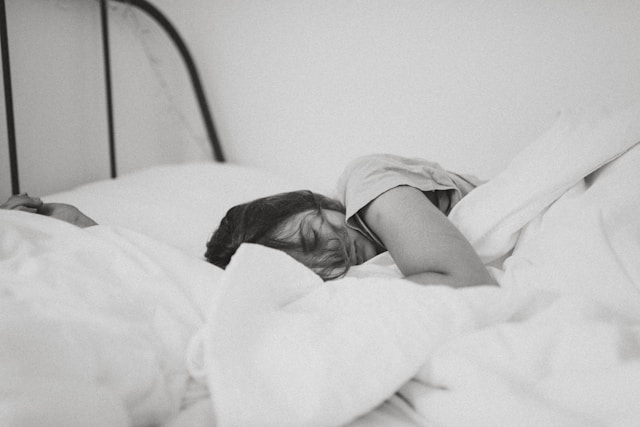Human beings need sleep to survive, and different stages of life require different amounts of sleep. The older you get, the more sleep you need. Older adults need rest to be healthy and rested in their daily activities.
The more you know about proper sleep, the easier it is to take care of yourself or a loved one in your life. Keep reading to learn more about how many hours of sleep seniors need and sleep hygiene tips to make it easier to get quality rest at night.
How Many Hours of Sleep Do Seniors Need?
Significant sleep is recommended for seniors. According to one study, those who are older than 60 need seven to eight hours of sleep a night. That’s up from the average for those between 20 and 60, who need around seven hours of sleep. Every hour matters in the evening.
Sleep is vital for rest and recovery in older bodies. Without sleep, the body can’t function well for the long term, and it can even lead to dangerous conditions. If you have struggles sleeping, there are some sleep hygiene tips to make it a simpler process.

Sleep Hygiene Tips
Form a Consistent Schedule
One of the best ways to ensure you fall asleep is to form a consistent schedule. Rather than allowing yourself to go to sleep and wake up at random times, have a strict time you adhere to. When you lie down to sleep at night, don’t bring your work to bed with you. It should be time for sleep when you lie down.
It’s ideal to sleep around the same time each day to wake up around the same time. You shouldn’t lie down more than eight hours before you get up, or it could knock your sleep off schedule. Additionally, adopt a bedtime routine which includes skincare, dental care, and more to ensure you go to sleep with a happy, healthy body.
Refrain From Stimulants Before Bed
Another way to make it easier to go to sleep at night is to refrain from stimulants before bed. This means avoiding from drinking anything with caffeine or alcohol since they tend to stimulate more than other items. If bedtime is coming soon, keep the stimulants in bed.
If you must have a warm cup of tea or coffee, ensure you go with a decaffeinated variety to prevent yourself from waking up more than necessary. It might take time to remove these, but they can deeply impact your sleep regimen.
Make a Relaxing Environment
Before you go to bed, create a relaxing environment to settle down. Try to do some relaxing activities to wind yourself down. The more relaxed you are, the easier it will be for your body to rest.
Excellent ways to create a relaxing environment include lighting a candle, reading a book, or setting the temperature to something you enjoy. Consider putting on a cozy bathrobe and the lovely scent of a diffuser to calm yourself down. There are ample ways to form a relaxing environment, no matter where you live or how old you are.
Limit Naps
Unfortunately, naps can impact your ability to sleep at night. According to some studies, naps in the daytime can lower your body’s drive to rest in the evening. If you nap for too long, your body won’t feel like it needs to rest at night, and you could have trouble slipping into a healthy seven to eight hours of sleep.
If you want to nap, it’s best to take it before early afternoon, and it shouldn’t be more than an hour. The best time to nap is right after lunch when there’s a reason to rest, but it’s still far from bedtime. Ultimately, naps can hinder more than they can help.

Have a Pre-Bedtime Routine
Getting a routine can help the body know it’s time to wind down. If you do the same things before hitting the hay, your body will slowly understand what’s happening when you launch into your routine. Plus, it will help you wind down for the night and easily sink into some sleep.
Items that could be included in your pre-bedtime routine include reading a book, taking a bubble bath, brushing your hair, and more. Come up with an effective combination to soothe your body into rest.
Don’t Go On Screens Before Bed
According to one study, getting rid of screens before you go to bed could improve the quality of your sleep at night. Digital distractions can wake up your brain and confuse it, all while hooking you with bright images that keep you scrolling. Screens are one of the worst things you could touch when seeking sleep.
Many adults even wake up in the middle of the night and check their screens, which continues to lower their ability to sleep. We don’t recommend going on screens before bed if you want a full evening.
Try Light Meals
Many get the munchies at night for something heavy, like a massive bowl of ice cream or a bag of chips. You might also have a habit of eating a large dinner at night. Unfortunately, these do not bode well for your sleeping ability. If you feel hungry, try a lighter snack or meal instead.
A later, healthier dinner tends to be a much better choice than earlier, less healthy dinners for the sake of sleep. It will keep you full and won’t wake you up with sugar and other additives. Plus, light meals are better for you in the long run.
Why Does Sleep Matter for Seniors?
Seniors need seven to eight hours of sleep a night, so it’s vital to get the rest whenever possible. There are several ways to keep up with sleep hygiene. Some of the most effective ways to handle sleeping at night include setting up a bedtime routine, reducing stimulants, and eating later and healthier meal options before bed.
Sleep is vital for the health of seniors. If you are in your older years or know someone who is, ensure seven to eight hours of sleep is the norm. It will bring about ample health benefits.
You May Also Enjoy: The 11 Best Gifts for Seniors


















